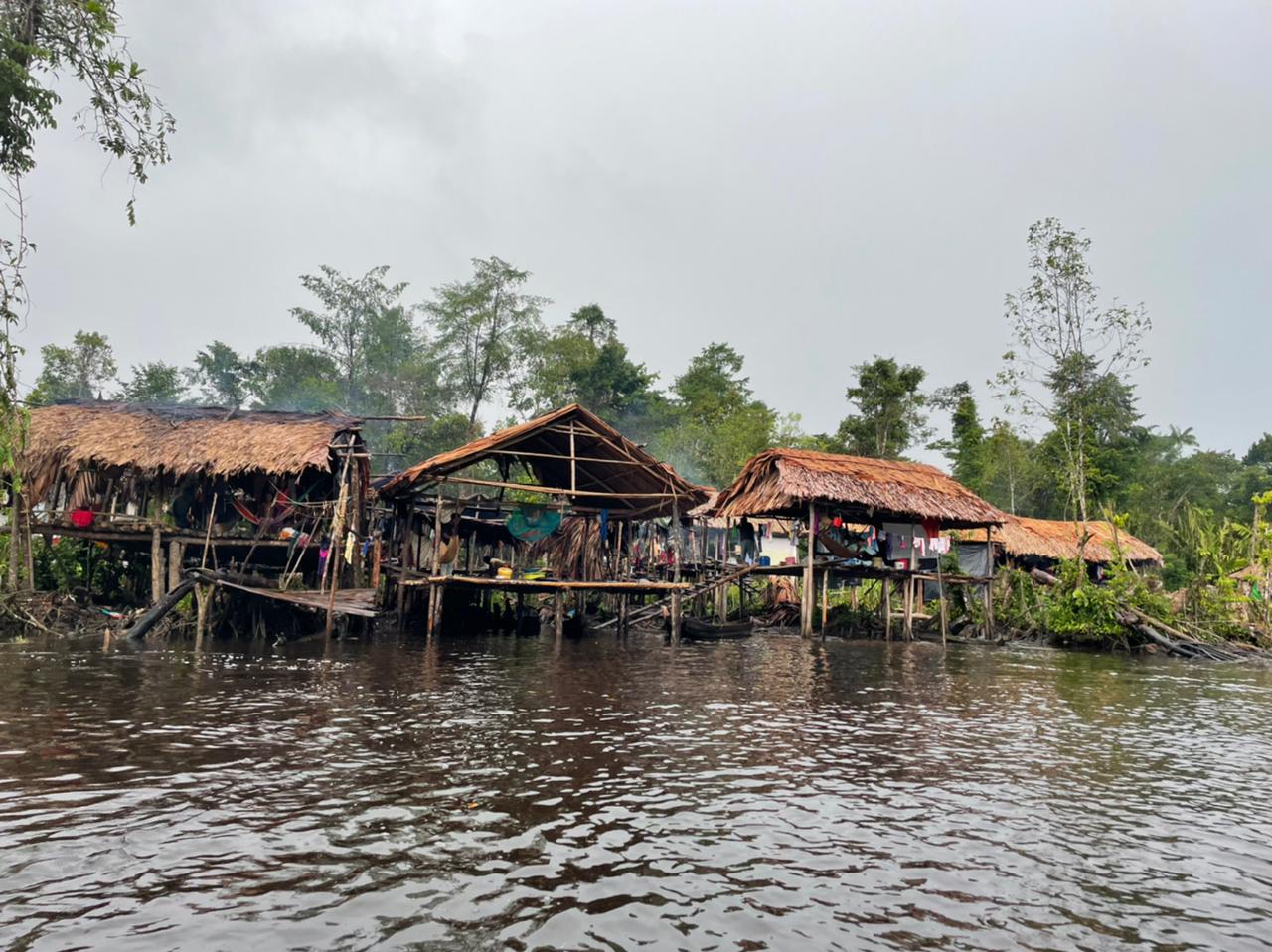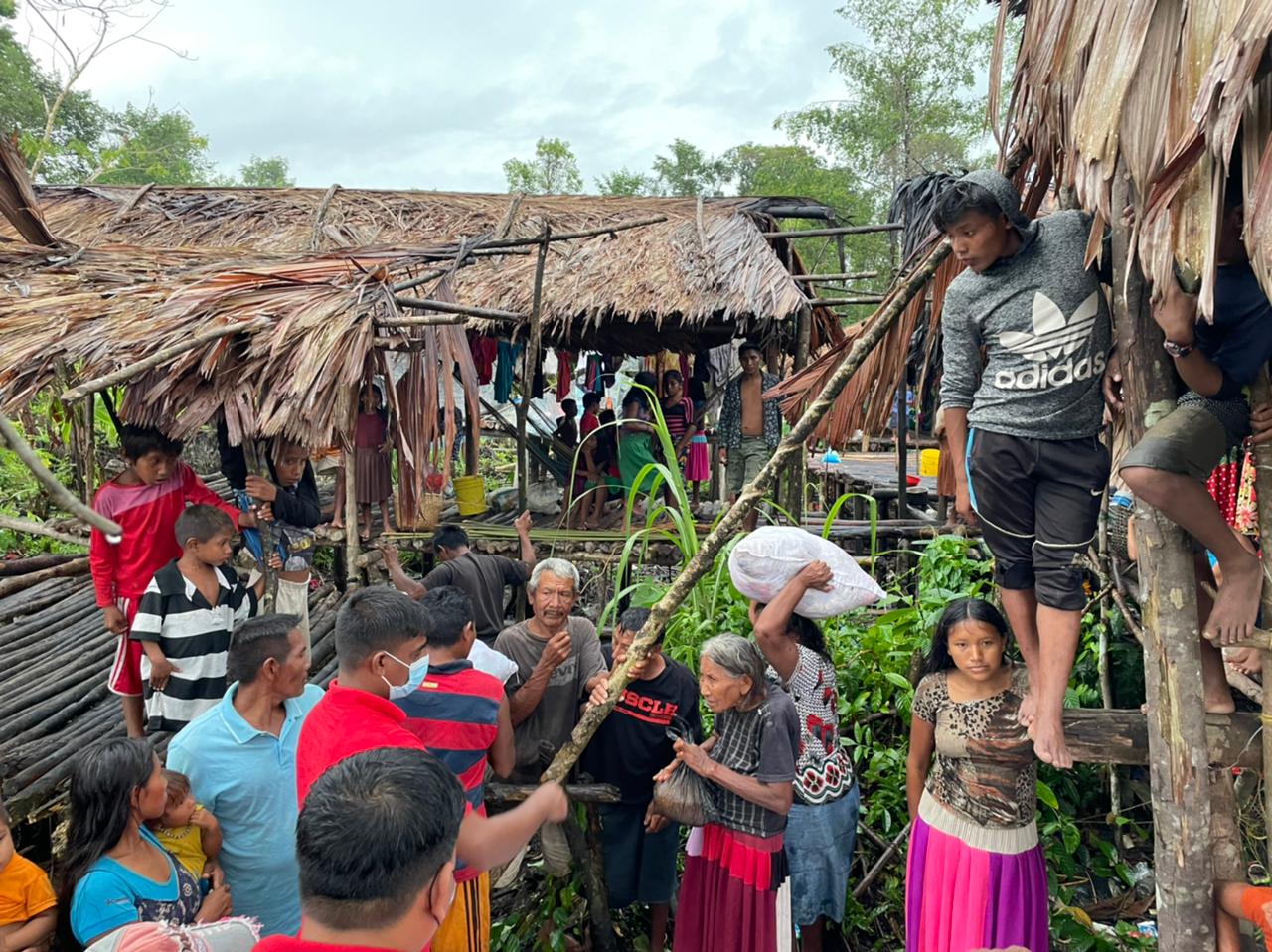
By Vishani Ragobeer
United Nations (UN) Refugee Agency Representative Philippa Candler says that about 24,500 Venezuelans have migrated to Guyana but the international body is increasingly concerned about the condition of the estimated 2,500 Warrau indigenous migrants.
Candler told a press briefing on Friday that some of the migrants have settled in hard-to-reach areas near the Venezuelan border. In these communities, access to social services – including health and education – is limited; employment is also limited.
Exacerbating this situation is the sheer remoteness and lack of infrastructural development in some of the communities where the migrants have taken refuge. And, according to assessments conducted in October and November, the Warrau migrants, in particular, have mounting needs, worsened by the downturn caused by the COVID-19 pandemic.
Altogether, Candler reasoned that the migrants were in a vulnerable state.

As such, she emphasised, “Increased humanitarian presence and timely support from the international community is needed to help the Government of Guyana respond to the needs of these communities.”
There have been recent reports of sick, malnourished Warrau children who have settled at Anabisi, a remote community in Region One (Barima- Waini). Following those reports, a team of government officials and health workers conducted an outreach activity. On Friday, according to information Candler tweeted, she too visited the community.
At the briefing, which was held before her visit to the community, Candler lamented that most Warraus have only one meal a day or less. And, many resort to begging, working odd jobs, or depending on humanitarian assistance because of the limited formal job opportunities.
“Most families also do not have access to drinking water, relying instead on rivers for drinking, as well as bathing and defecation,” she highlighted.
It is important to note too that Candler pointed out that since 2020, some 250 Warraus have settled in Anabisi.
During the recent outreach activity local paediatrician Dr. Neil Samwaroo stated that there were children who were chronically malnourished; chronic conditions develop slowly and are more long-term.

And, Minister of Health Dr. Frank Anthony attributed many of the health conditions faced, including skin infections, diarrhea, and upper respiratory infections, to the poor quality water the migrants were using.
Both Dr. Anthony and the Minister of Human Services and Social Security Dr. Vindhya Persaud have stated that continuous support – first focusing on food and medical needs – will be provided to the migrants in Anabisi.
The UN Refugee Agency – called the UNHCR – has also been coordinating with the government and humanitarian partners on how to best support the government-led response.
Candler also said that the agency is delivering food hampers, solar lamps, mosquito nets, water purification tablets provided by the Civil Defense Commission (CDC), and other basic relief items to some 400 indigenous Warraus, including to those in the Anabisi community.
The News Room understands that the government is currently working along with several international bodies to coordinate support for the Warrau indigenous people. It is not yet clear what longer-term solutions will be instituted.




